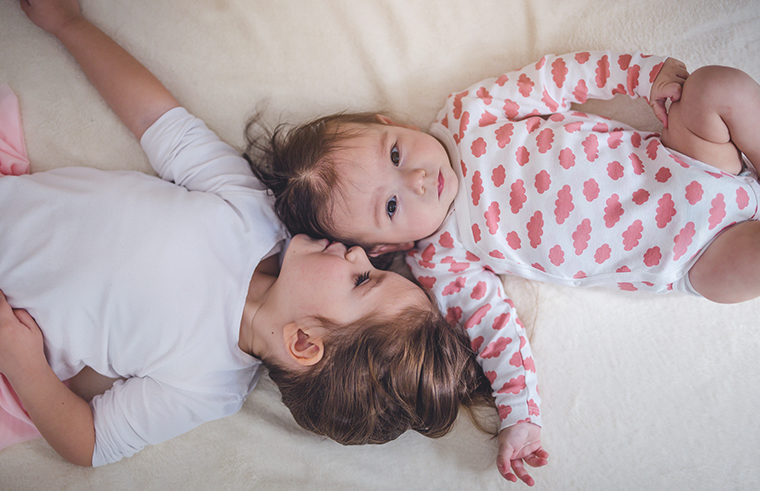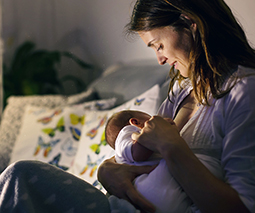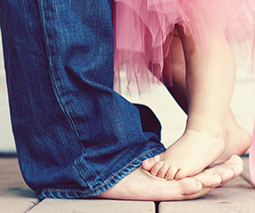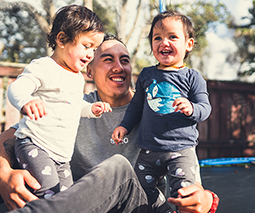A parent’s guide to sibling rivalry

Perhaps you have a new baby on the way and are feeling nervous about how your toddler might respond. Or you have a preschooler and a toddler locked in mortal combat most hours of the day. Know that you’re not alone and that the struggle is completely, noisily real …
What is it?
Sibling rivalry describes the tension or conflict between children in the same family who are in some level of competition with each other.
When does it happen?
Some children get along well from day dot, while others (much to their parents’ distress) are less harmoniously matched.
Sibling rivalry is especially common when children are the same gender or close in age or when a new baby makes an appearance.
Kids are keen to commandeer their parent’s attention and confirm their place in their parent’s heart. They’re also seeking to define their individuality and show they are separate to their siblings. Factors such as children’s temperament and personality quirks also come into play in sibling stoushes.
While this kind of rivalry may have mums and dads on edge, experts tell us that children are often much less bothered by these flare-ups and consider them a normal part of sibling life. And, as social skills develop, sibling rivalry usually becomes less of a problem.

Softening the blow
It’s not really possible to rule rivalry out altogether, because kids will indeed be kids, but there are a few commonsense things to be mindful of as you grow your family.
Sibling rivalry rates are lower in families where kids feel they are treated similarly by both parents and where their place in the family is respected and valued. Keeping the playing field as even as possible is key.
It’s also important to monitor fights and help your kids to develop strategies for dealing with conflict. Don’t leave them to fight it out, but also be careful to referee any squabbles calmly and fairly.
If the fighting seems dangerous to either child, separate the kids immediately, allow things to calm down and discuss better behaviour when things are quieter.
Consider the behaviour you are modelling for your kids, too. If there is conflict in the home between adults, it’s not surprising that it may play out that way in children too.
When a new baby arrives
Perhaps you’ve got a new baby on the way and you’re keen to head future spats off at the pass? Here’s a few ideas on pre-baby groundwork you can do to make things easier for you and your kids:
- If your child is sleeping in a cot, move them into their own bed long before the baby’s arrival. There is nothing sadder for a toddler than a new baby stealing their cot, so plan ahead!
- If you’ll be making changes in your toddler or preschooler’s routine, try and establish these well ahead of the baby’s arrival, if possible.
- Begin talking about taking turns and establish small ‘rewards’ or special tasks for your toddler to do while you’re dealing with the new baby ahead of time. This is especially helpful if you are breastfeeding a baby and a toddler (and your toddler has to wait for their turn), or at nappy changing or bedtimes.
- Borrow books from the library about new babies so you can discuss the exciting, upcoming family changes with your toddler or preschooler.
- Spend time around other babies, visiting friends with babies together or even just heading to the park to observe what life with a baby might be like.

Dealing with toddler or preschool jealousy
- Talk to your child about their feelings and the circumstances around their jealous flare-ups. Let them know that feeling jealous, angry or frustrated is normal. Reassure them that they are equally loved and help them develop strategies for voicing their feelings more constructively.
- Notice when your child is behaving nicely with their sibling and praise them for this kind or gentle behaviour.
- Recognise that hunger, fatigue and challenging situations can amplify sibling rivalry.
- Schedule one-on-one time with your older child and give them plenty of cuddles and kisses during this special time.
- Don’t push your child to be ‘grown-up’ all the time now that there’s a new baby in the house. Allow them to be little when they need to be and approach any regression – for instance, mimicking baby behaviour – with good humour.
- Discuss the benefits of having a new baby: being a big brother or big sister, being helpful, teaching the baby things, learning more about babies.
- Never compare your children to each other. Celebrate their efforts and differences.
- Give your children space to be independent from each other. Don’t expect them to play or exist happily together all the time.
- Add some reliable family rituals to your routine and encourage sharing and respectful treatment of one another. Family dinners and positive meal-time conversations are one way of doing this.

Squabble-busting rules
Develop an age-appropriate code of conduct for your family, consider consequences and discuss them with your children. Some examples might be:
- It’s not okay to touch your sibling in a hurtful way (kicking, pinching, hitting, etc).
- It’s not okay to call each other mean names or say nasty things to hurt each other.
- If kids are fighting over a toy, the toy will be put in ‘time-out’.
- Fighting in the car means we have to pull over and wait until everyone is quiet.
- We take turns deciding favourite things like dinner, movies to watch or books to read. (Draw up a simple kid-friendly roster and put it where your kids can see it.)
When to get more help?
If your child is consistently or worryingly violent with their sibling, it’s time to seek help. Head to your GP or Maternal Child Health Nurse for further advice or referrals.
The sooner your family gets the help they need, the sooner home life can be a calmer, more enjoyable experience.
 Need some more toddler behaviour or sibling rivalry advice? Our Parent School toddler experts can help. Click to find out more or book a one-on-one session.
Need some more toddler behaviour or sibling rivalry advice? Our Parent School toddler experts can help. Click to find out more or book a one-on-one session.









